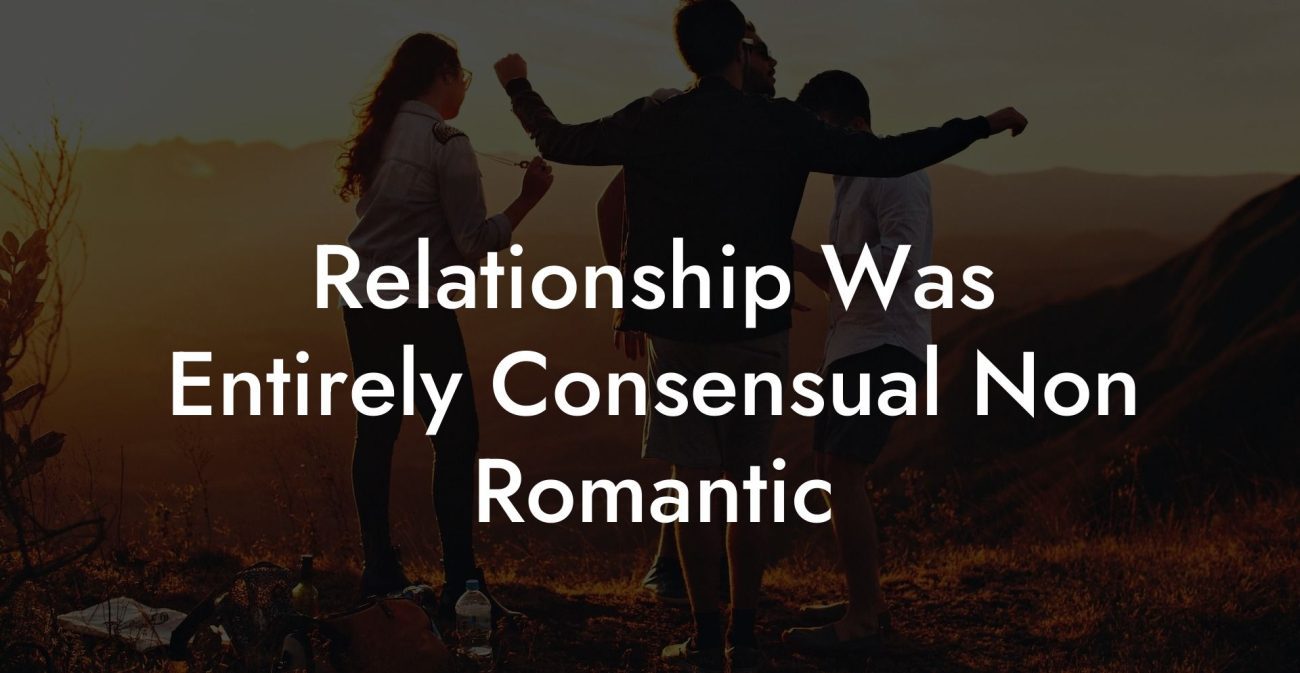Are you curious about the world of non-monogamy and wonder how it differs from the traditional monogamous relationships? Non-monogamy has become a more widely accepted relationship style in recent years, but there is still a lot of misinformation and lack of understanding surrounding this lifestyle. In this article, we will dive deep into the non-monogamous definition, explore various types of non-monogamous relationships, and provide a realistic example to help you better understand this unique relationship dynamic.
What is Non-Monogamy?
Non-monogamy refers to any relationship structure that doesn't adhere to the traditional idea of monogamy, which is having a romantic and sexual relationship with just one person at a time. Non-monogamous relationships vary widely in structure, rules, and agreements between the parties involved.
Types of Non-Monogamous Relationships
There are several different forms of non-monogamous relationships, each with its own unique characteristics and agreements. Some of the most common types of non-monogamy include:
Open Relationships
An open relationship is a committed, romantic relationship between two partners who agree to have additional sexual or romantic connections with others, with certain mutually agreed-upon boundaries and rules in place. Both partners have the freedom to engage with others, but the primary partnership remains a priority.
Swinging
Swinging is a form of non-monogamy in which couples engage in consensual, recreational sexual activities with other couples or individuals. Swinging often occurs at organized events or private venues but can also happen informally among friends or acquaintances.
Polyamory
Polyamory is a relationship structure that involves the practice of having multiple committed and emotionally-involved romantic relationships, with the full consent and knowledge of all involved parties. Unlike open relationships, polyamorous relationships often place a stronger emphasis on emotional connections, and partners may form deep bonds with multiple partners.
Relationship Anarchy
Relationship anarchy is a form of non-monogamy that prioritizes individual freedom and autonomy in relationships. Relationship anarchists reject the traditional hierarchies and rules that govern most romantic relationships, instead choosing to create their relationship structures based on their desires and needs. This may result in various types of connections, including friendships, romantic relationships, or sexual relationships, all based on the individuals' preferences and agreements.
Monogamish
A monogamish relationship is a primarily monogamous relationship with occasional mutually-agreed-upon exceptions. This may include occasional threesomes, "hall passes" for extramarital encounters, or other agreed-upon experiences outside of the primary relationship.
Non Example:
Imagine a couple, Alex and Taylor. They are in a committed, long-term relationship but have recently discussed exploring non-monogamy. They mutually decide to open their relationship, allowing each other to have additional sexual experiences with other people – but only on a casual basis, without the expectation of developing deeper emotional connections. They set boundaries for communication, disclosure, and safer sex practices.
As they explore their newfound relationship freedom, they may choose to engage in one-night stands, casual dating, or attend swinging events. While their primary relationship remains the most important aspect of their lives, they are now able to share additional sexual experiences that would have been considered off-limits in a traditional monogamous relationship. Their open relationship helps expand their sexual horizons, fuel new conversations, and foster a deeper sense of intimacy between them as they navigate this new aspect of their lives together.
Now that you have a better understanding of the non-monogamous definition and its various forms, you can explore whether this type of relationship dynamic might be right for you. Remember, open communication, trust, and setting boundaries are key for any successful non-monogamous relationship. If you found this article helpful, please feel free to share it with friends or explore other guides on The Monogamy Experiment.













